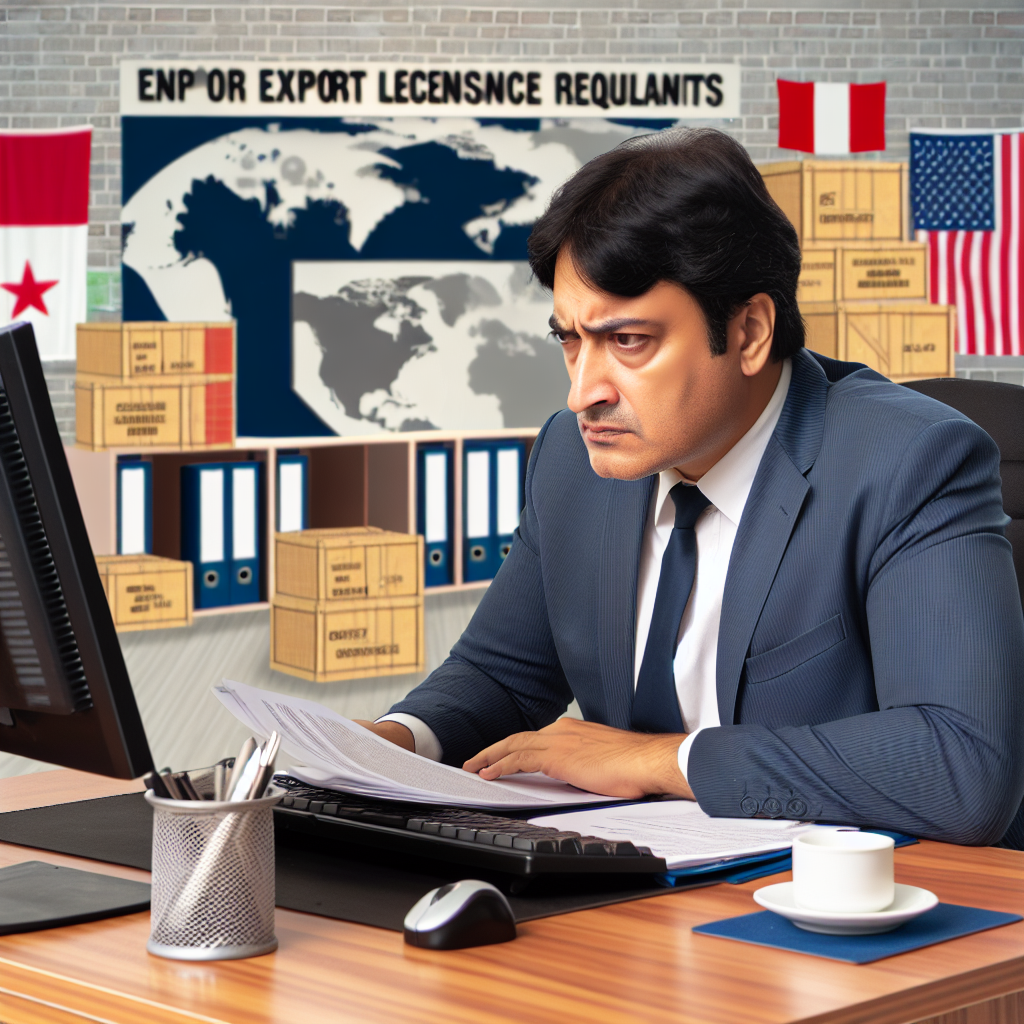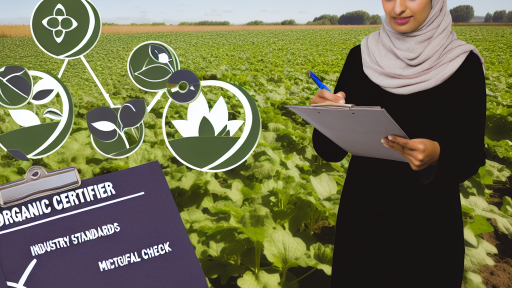Introduction to Export Licensing
Definition of Export Licensing
Export licensing refers to authorization required to ship products overseas.
This process allows governments to monitor and control exports effectively.
By obtaining a license, companies ensure compliance with regulations.
Licenses typically apply to sensitive goods, technology, and military items.
Importance of Export Licensing
Compliance with export licensing regulations protects national security.
It helps to prevent illegal trades and ensure the safety of nations.
Furthermore, obtaining licenses fosters international trade trust.
Export licenses also provide businesses with a competitive advantage.
They can access limited markets that require licensing for entry.
Legal Framework for Export Licensing
Export licensing is governed by specific legal frameworks in each country.
For example, in the U.S., the Bureau of Industry and Security oversees licensing.
Each country may have different regulations and requirements.
Understanding these laws is crucial for successful international transactions.
Types of Export Licenses
There are several types of export licenses to consider.
- General Licenses: These cover most commercial exports without extensive review.
- Individual Licenses: These are required for specific transactions or goods.
- Validated Licenses: These require an application process and government approval.
Application Process for Export Licenses
The application process for obtaining an export license varies by jurisdiction.
Transform Your Agribusiness
Unlock your farm's potential with expert advice tailored to your needs. Get actionable steps that drive real results.
Get StartedTypically, it involves submitting detailed information about the goods.
Additionally, companies may need to provide documentation on end-users.
Accurate and complete applications facilitate quicker processing times.
Types of Export Licenses
General Export Licenses
General export licenses allow the shipment of specific products without additional authorization.
They typically cover a broad range of goods deemed low-risk by regulatory authorities.
Businesses must still follow all other regulations when using general licenses.
It’s important to understand which products qualify under this type of license.
Specific Export Licenses
Specific export licenses are required for sensitive or high-risk items.
These licenses necessitate a detailed application process and approval from trade authorities.
As a result, obtaining these licenses can take more time and effort.
For example, military or dual-use technologies usually require specific licenses.
Application Process
Applying for a specific export license involves several steps.
First, businesses must conduct a thorough assessment of the products.
Next, they need to complete the appropriate application forms.
Finally, submitting the application requires payment of any necessary fees.
Exemptions from Export Licensing
Some goods and services are exempt from general licensing requirements.
These exemptions often apply to items deemed to pose minimal risks.
Additionally, certain transactions may not require a license under specific conditions.
For instance, government-related communications might be exempt.
Common Exempted Items
Common exemptions include certain types of software and generic consumer goods.
Moreover, shipments for personal use may also fall under exemption categories.
Consequently, businesses should be aware of specific regulations regarding exemptions.
Key Agencies Involved in Export Licensing
Introduction to Export Licensing Agencies
Export licensing involves several key agencies.
Each agency plays a role in regulating exports effectively.
Showcase Your Farming Business
Publish your professional farming services profile on our blog for a one-time fee of $200 and reach a dedicated audience of farmers and agribusiness owners.
Publish Your ProfileUnderstanding their responsibilities is crucial for compliance.
The Bureau of Industry and Security
The Bureau of Industry and Security (BIS) oversees export enforcement.
BIS handles the Export Administration Regulations (EAR).
It determines whether an export license is required.
BIS also manages the Commerce Control List (CCL).
These listings categorize items based on their strategic importance.
The Office of Foreign Assets Control
The Office of Foreign Assets Control (OFAC) administers sanctions.
OFAC restricts trading with specific countries and individuals.
Compliance with OFAC regulations is critical for exporters.
Violations can lead to severe penalties.
The Directorate of Defense Trade Controls
The Directorate of Defense Trade Controls (DDTC) regulates defense exports.
It enforces the International Traffic in Arms Regulations (ITAR).
DDTC assesses licensing applications for defense-related goods.
All exporters dealing with military items must comply with these rules.
The State Department
The State Department plays a vital diplomatic role in exports.
It collaborates with other agencies for export controls.
The department helps promote U.S. foreign policy through trade.
Specifically, it addresses human rights and security concerns.
Collaboration Among Agencies
Coordination among these agencies ensures effective export control.
They share information for national security and compliance.
Regular communication enhances understanding of regulations.
This collaboration benefits both exporters and government agencies.
Importance of Understanding Requirements
Understanding export licensing requirements is essential for businesses.
It helps avoid legal issues and penalties related to non-compliance.
Familiarity with these agencies can streamline the export process.
Moreover, it enhances the company’s reputation globally.
You Might Also Like: Navigating Farm Tax Regulations Easily
Understanding Export Control Lists and Regulations
What are Export Control Lists?
Export control lists categorize items subject to government regulation.
These lists include sensitive technologies, dual-use goods, and military items.
Familiarity with these lists helps businesses comply with export laws.
In the United States, the Bureau of Industry and Security (BIS) maintains the Commerce Control List (CCL).
Additionally, the U.S. Department of State oversees the United States Munitions List (USML).
Importance of Understanding Regulations
Understanding regulations reduces the risk of non-compliance.
Non-compliance can lead to significant penalties or legal repercussions.
Moreover, it can damage a company’s reputation and business relationships.
Thus, companies must keep abreast of changes to these regulations.
Regularly reviewing these lists ensures adherence to current standards.
Key Elements of Export Regulations
Export regulations encompass several essential components.
- Licensing Requirements: Some items need specific export licenses.
- End-Use and End-User Checks: Companies must confirm the final use and user of the products.
- Compliance Documentation: Exporters should maintain thorough records of all transactions.
- Foreign Military Sales: Special regulations apply to military-related exports.
Each element plays a vital role in the overall export process.
Understanding these components helps reduce the chances of violations.
Showcase Your Farming Business
Publish your professional farming services profile on our blog for a one-time fee of $200 and reach a dedicated audience of farmers and agribusiness owners.
Publish Your ProfileCurrent Trends in Export Control
Export control regulations are evolving in response to global developments.
New technologies and geopolitical shifts influence these changes.
Companies must adapt to remain compliant in this dynamic environment.
Moreover, international collaborations can complicate export compliance.
Therefore, regular assessments of compliance strategies are essential.
Resources for Staying Informed
Several resources help companies stay informed about export regulations.
- Government Websites: Agencies like BIS and the State Department provide timely updates.
- Trade Associations: Many industry associations offer guidance and best practices.
- Conferences and Seminars: Attending events can facilitate learning and networking.
- Consulting Services: Professional advisors can offer tailored compliance support.
Using these resources ensures that companies remain compliant and informed.
See Related Content: Organic Labeling Requirements For Farms
Application Process for Obtaining an Export License
Understanding Export License Types
Different types of export licenses exist based on commodities.
Firstly, general licenses cover a wide range of items.
Secondly, individual licenses apply to specific transactions.
Understanding these types helps determine your needs.
Preparing the Application
Start by gathering necessary documentation for the application.
Common documents include product descriptions and end-user certificates.
Additionally, you may require re-export certificates for previous exports.
Ensure all forms are filled out accurately and completely.
Submitting the Application
Submit your application to the relevant government agency.
In the United States, this is typically the Bureau of Industry and Security (BIS).
Include all required documents with your submission for prompt processing.
Track your application status online for updates.
Awaiting Approval
Be prepared for potential follow-up questions from authorities.
This may involve providing additional information or clarification.
Patience is crucial, as processing times can vary greatly.
Take this time to ensure compliance with all export regulations.
Obtaining the License
Once approved, you will receive your export license via email or mail.
Ensure you read all terms and conditions associated with the license.
Keep a copy of the license for your records and future references.
Moreover, stay informed about any changes in export regulations.
Renewing or Modifying the License
Licenses may require renewal after a specific period.
Submit renewal applications well in advance of expiration dates.
Additionally, if your business changes, you may need to modify the license.
Gather necessary documentation in such cases for smooth processing.
Delve into the Subject: Impact Of Certification On Farm Profitability
Compliance Requirements for Export Licensing
Documentation Necessities
Proper documentation is critical for export licensing compliance.
Each export must have the necessary paperwork prepared meticulously.
Commonly, exporters require commercial invoices and packing lists.
Furthermore, shipping documents serve as vital pieces of evidence.
Exporters must also provide certificates of origin when applicable.
Reporting Responsibilities
Exporters hold specific reporting responsibilities under export law.
They must submit accurate export declarations to government agencies.
Showcase Your Farming Business
Publish your professional farming services profile on our blog for a one-time fee of $200 and reach a dedicated audience of farmers and agribusiness owners.
Publish Your ProfileRegular reporting ensures transparency and compliance with regulations.
Failing to report can lead to severe penalties and sanctions.
Timely reporting of export transactions mitigates legal risks.
Understanding Regulatory Agencies
Multiple governmental agencies oversee export operations.
The Bureau of Industry and Security (BIS) plays a pivotal role.
Additionally, the Office of Foreign Assets Control (OFAC) imposes regulations.
Exporters must familiarize themselves with these agencies’ guidelines.
Maintaining open communication with these bodies can simplify compliance.
Risk Management in Export Licensing
Effective risk management strategies are crucial for exporters.
Exporters should conduct thorough due diligence on clients and markets.
Identifying potential risks can help in mitigating them effectively.
Additionally, training employees on compliance can strengthen operations.
Regular audits of export practices can ensure adherence to regulations.
Discover More: Hiring Practices Under Farm Labor Laws

Consequences of Non-Compliance
Legal Implications
Non-compliance with export licensing requirements can lead to severe legal consequences.
Governments often impose heavy penalties for violations of export laws.
These can include fines and, in some cases, imprisonment.
Additionally, individuals and companies may face restrictions on future export activities.
This can severely limit their ability to operate in international markets.
Financial Implications
The financial implications of non-compliance can be crippling.
Organizations may incur substantial fines due to violations.
Moreover, legal battles can further drain financial resources.
Loss of business can occur as customers and partners distance themselves.
Additionally, compliance issues can damage a company’s reputation significantly.
Operational Setbacks
Non-compliance can lead to significant operational delays.
Export shipments may be held or seized until issues are resolved.
This can disrupt supply chains and impact customer relationships.
Moreover, companies may face increased scrutiny from regulatory bodies in the future.
This heightened oversight can complicate future export opportunities.
Industry-Specific Consequences
Industries vary in their exposure to the risks of non-compliance.
For example, the defense sector faces stricter regulations compared to other industries.
Violations in such sectors can lead to immediate and substantial repercussions.
On the other hand, technology companies may face issues related to intellectual property.
Consequently, understanding industry-specific regulations is crucial.
Best Practices for Businesses to Navigate Export Licensing
Understanding Export Licensing
Export licensing is a crucial part of international trade.
It involves complying with government regulations effectively.
Understanding its requirements can save businesses from legal complications.
Research Licensing Requirements
Begin by identifying the specific products you plan to export.
Different products have different licensing requirements.
Consult the Bureau of Industry and Security website for guidance.
Showcase Your Farming Business
Publish your professional farming services profile on our blog for a one-time fee of $200 and reach a dedicated audience of farmers and agribusiness owners.
Publish Your ProfileAdditionally, review relevant federal agencies for specific regulations.
Establish Strong Relationships with Regulatory Agencies
Build a reliable connection with export control agencies.
Regular communication can help clarify licensing processes.
Furthermore, it allows for timely updates on regulatory changes.
Develop an Internal Compliance Program
Create a robust compliance program tailored to your business needs.
This program should educate employees on licensing requirements.
Moreover, it should outline procedures for applying for licenses.
Utilize Technology and Software Solutions
Leverage technology to streamline export processes.
Many software programs help manage compliance and licensing needs.
Moreover, these tools can help track shipments and documentation.
Conduct Regular Training and Reviews
Ensure staff members receive ongoing training on export regulations.
This training should include updates on new rules and best practices.
Additionally, conduct regular reviews of your compliance program.
Case Studies: Successful Export Licensing Processes and Lessons Learned
Introduction to Case Studies
Understanding successful export licensing processes helps businesses grow.
Case studies offer real-world examples of effective practices.
These stories illustrate challenges and solutions in export licensing.
Case Study: Tech Innovations Ltd.
Tech Innovations Ltd. faced hurdles in obtaining export licenses.
Initially, they struggled with paperwork requirements in multiple regions.
To resolve this, they hired a compliance specialist.
The specialist streamlined their application process effectively.
As a result, the company received licenses within weeks.
This led to a significant expansion into international markets.
Lessons Learned from Tech Innovations Ltd.
The importance of hiring experts cannot be overstated.
Additionally, understanding regional regulations enhances compliance.
Furthermore, proactive planning reduces processing times considerably.
Case Study: Global Home Goods
Global Home Goods experienced delays in their export licensing.
Their products required specific safety certifications for overseas markets.
They collaborated with local certification bodies to address this issue.
This cooperation resulted in expedited approvals for their products.
The company successfully launched its line in Europe and Asia.
Lessons Learned from Global Home Goods
Building relationships with local regulators proves beneficial.
Moreover, obtaining certifications ahead of time streamlines processes.
Effective communication with stakeholders ensures smoother operations.
Case Study: Green Energy Solutions
Green Energy Solutions faced complex licensing requirements for their technology.
They invested time in understanding the international regulations.
This allowed them to develop a checklist for future applications.
Their organized approach led to timely approvals from various countries.
This initiative propelled their technology into new markets.
Lessons Learned from Green Energy Solutions
Thorough research on regulations is crucial for exporters.
Creating checklists simplifies the licensing process significantly.
Showcase Your Farming Business
Publish your professional farming services profile on our blog for a one-time fee of $200 and reach a dedicated audience of farmers and agribusiness owners.
Publish Your ProfileLastly, adaptability to different markets fosters growth opportunities.
Implications of Export Licensing Practices
These case studies highlight best practices in export licensing.
They illustrate how overcoming challenges leads to success.
By learning from these experiences, businesses can improve their strategies.
Additional Resources
U.S. Export Licenses: Navigating Issues and Resources
Basic Importing and Exporting | U.S. Customs and Border Protection




